So as anyone in illustration knows at least after a few jobs, not all seas are calm, not every journey without adventure. Sometimes the crappy kind you wish you could avoid, and often outside of your ability to control or be responsible for. Especially these days with the seemingly endless game of Crisis Frogger we all seem to be stuck playing. There are ways through and out of them, there are ways you could make it worse and career damaging, and there are ways to surf the chaos come out the other side better as an artist for it, and having solidified relationships with your publisher in the way survivors of war become family. I’ve been through so many of these, on all scales at every level, and not just in illustration, but in the carpentry home repair stuff I did to make a living before I somehow fell into this weirdo life I now occupy. Artists and creatives are requisite egomaniacs, all of us. We have to be, to some extent, to foster the insane notion that our ideas or scribblings are somehow worthy of other people’s time, energy and money they could perhaps better apply to a nice sandwich, or needed medication. We make things that are not necessarily essential to surviving, but foundational to living, but that ego can get in the way a lot more than it should and often does. Most of managing exceptionally troubled waters successfully is about getting out of your own way so at the very least you can better see the maze you need to navigate through. Self checking, leaning on your friends and colleagues, and getting outside advice in these situations is key to managing them. I cannot state this enough or with the needed enthusiasm. As much as you may think you know how to deal with a crisis, you’re either TOO in it or TOO much a part of it to be able to see all the angles and solutions clearly.
Oftentimes, when there’s a crisis moment either for creative freak terms or because something is going terribly awry, it’s too easy to get lost in the adrenaline fueled moment and react rather hastily rather than respond properly. Sleep is the great healer, and if you find yourself embroiled and roiling and about to send that email, make some grand decision to quit, or post some scurrilous missive online… take a night’s sleep and see what the morning brings. There have been jobs when the entire thrust of the work has been rejected by the principles and I can fathom no solve to get out from it, or have an ounce of the needed energy to start over… hell or even to KNOW where to start over, that stopping, taking the night doesn’t solve entirely. If I hadn’t done this for IN THE MOOD FOR LOVE, I’d have not had the next-mining revelation to do an entirely different approach to that LP and poster that not just saved it, but elevated it, as an example. I’ve had so many cover jobs that ran into an inescapable cul-de-sac and become saved by an early morning revelation clearing my head, settling down and listening to the music solved. I cannot stress enough the nearly cliched value of slowing down and taking a breath. Always better to fight in the samurai way rather than the Conan berserker way- choose your time to strike, wait for your moment, asses your surroundings. YES, swinging your big sword thing around can sometimes get the job done if your lucky, but more often it’s the quiet, mindful strike that does it better, and leaves a lot less blood on the ground. When swinging only once can do what thirty can, and tell me it’s not a better way forward in every way. Sometimes the best way to win a fight is to avoid the fight.
It’s YOU not them
Of the two this is the easiest, though maybe the most tricky to solve, because the source of the problem is nearby and also the solution. Often it’s the wrong gig for you that you took out of need, or some calculus that it would be an important step towards a better goal. Sometimes you’re just in the wrong headspace and your punching the wrong thing that’s driving you crazy. Oftentimes the best way to begin to solve things is the same trick that will apply to ALL OF THESE things: think before you act, think instead of feel. Artists are invested in their work, or should be. It should matter to us. Yes many of us do this work in a more artisan shoe-cobbler kind of way: it’s a job or a craft and they fulfill the obligations of this craft like filling out an order for new boots. Many folks who work in the monthly cape comics scene work like this, the old Marvel bullpen as an example of this particular brand of construction work… but for the rest of us it’s a meaningful, for me in particular, a deeply passionate exercise roiled with peaks and valleys of emotional experience while working on it. Heartbreak and exaltation sometimes in the span of hours and back again. The important thing is to not confuse being professionally dispassionate with caring or being emotionally present. It’s advised to keep your emotional enthusiasm when relating to your clients in check- I’m not saying be a dead eyed robot, but recognize, say if you’re working with a hero of yours- an opportunity you may very well find yourself in- or some famous person, to avoid squealing and obsessing around like you’re a teen at an Elvis concert in the 60’s. It seems obvious but it really happens a LOT, and even from the client/pro side. I’ve seen it happen in the room and it always freezes everything up. There’s a simple method of keeping this spazzing pout in check and I confess to having employed this quite a bit myself. You’re suddenly in a meeting or on a phone with someone, some panel or public event or whatever, and holy shit it’s ….. and I love him and I can feel I’m losing my mind… just utter the mantra “THEY POOIP, TOO”. It’s ridiculous, and deflating in the best of ways, and brings you down to earth because at its core it’s a true thing, from Presidents to movie stars and hero authors. Essentially it’s the ole “see the crowd as naked” as a means to soften public speaking, but with more poop. Just helps keep you from getting in front of yourself overmuch, and allows you to come across as a professional, broadcasting you are one and are here to work, not gush. You’ll have time enough later to spam out about it quietly, so save it for then.
When the issue is you taking on the wrong job even for the right reasons, well this is tricky. We’ve all been there- the rent is due, it’s a favor gig baiting the hook for an ideal gig later, etc… sometimes it’s a tactical job or even you thought it would be awesome but the actual working relationship just plain sucks or is incompatible. More often than not, there’s a mercy in it being a limited thing, even if it’s a big children’s book project there’s a light firmly at the end of the tunnel. Some jobs though are a bit longer and more involved and in order to prevent a bad marriage, make sure to spend time getting a true sense of the people you’re going to be in bed with and do your due diligence on who you’re working with. Talk to colleagues about a particular publisher and learn how they operate if possible. Read the forest before running into it. But if you’re in there and it goes pear-shaped, which it does happen more often than you might guess- remain calm, use your brain and not your furiously frustrated heart, and navigate the best course through and OUT as effectively as possible. I’ve had really difficult jobs that in the end lead to essential landmark opportunities I would never want to have been without. It’s all about how you finish and stick the landing. And often, you’re not alone in the crap storm, and remaining calm professional and bringing your best work regardless of the storm will endear you to them in a way an easy success could never achieve. Just try to keep your emotions in check, don’t import your personal issues into a professional space. You’re going through a divorce, or your spouse just died in a boating accident, or your house burned down… give yourself space to process that OUTSIDE of the work environment best you can. If you cannot manage it, and life is just too on fire, have a calm and reasons and PRIVATE conversation with your AD/editor seeking a solve. Even if that solve is having to bow out and find a replacement, you can avoid a lot of career damage by not doing this in a volcanically dramatic way, or ghost them entirely because you refuse to engage.
Simply put, if there’s a problem, don’t be part of making it worse. Like trolling on them on social media- for god’s SAKE don’t make a private trouble a public platform that will in the end only make you look like someone no one wants to work with. I could put this at the end of each of the following paragraphs and it would always be true.
It’s THEM not you
A more common occurrence, and oftentimes one that comes from way outside the sphere of your control, but you get to suffer the consequences of it anyway. Whether it’s a crazy person that holds approval sway and is constantly needing to be managed by the AD/editor, outside world events like a pandemic, an economic crash, or your principle contacts getting the boot mid stream, these are waters you will need to surf rather than control. Your AD/editor is more often than not managing difficult situations on their side of the equation at a frequency and scale you may never be aware of. Sometimes I’ve had jobs where later over drinks they’ll tell me absolute horror stories going on inside the office or with an author or director that they shielded you from entirely. Your AD/Editor should be your closest partner on a project so make sure not to confuse them with the source of the problem. Sometimes they’re just the unfortunate messenger. Be understanding of what they may be going through and try to partner with them for a solution rather than contribute to the problem leaving them to be squished in a terrible catastrophe sandwich. Your editor gets fired in midstream and your book gets orphaned happens more than I’d like to hope for, and you might lose the entire thing, or you may get partnered with an irritated replacement who really had their plate full and now have to take on someone else’s project. The publisher you work for goes belly up, or their corporate overlords decide to perform a catastrophically clumsy reshuffling leaving you wondering where anything is anymore. Take a deep breath, look for options and sometimes wait and see what comes before making any sudden leaps. I’ve had all of these things happen, and sadly more than twice, and slowing down and letting the wheel turn a bit to see if a proper place of purchase swings by you might miss in haste, has always served me well. It’s natural to be freaked out scared and upset. Sometimes all you want to do is blaze your corporate overlords publicly or join in on the social media torch parade… Maybe don’t. I’ve had this exact event happen recently and while the pull to stand in solidarity with your peers is the rage, it tends to be a fire, like all wildfires that burns the innocent and the guilty alike. Again it can also make you look like a dangerous honey badger no one wants to hire into their house, in provable fear that you might someday soon turn your flame thrower on them too. Think Titanic not Apocalypse now; take care of yourself, aid your shipmates as best you can and do all you can to get the project to land, rather than be a part of the firestorm. One thing to always keep in mind is the NEXT project not the one you’re on. Just don’t wrestle with pigs whenever possible- you’ll both get dirty but the pig will will love it. So choose you battles, how and when you fight, and if to fight at all, and don’t vamp it publicly. Sometimes things are just terrible and not being part of the terrible can be extremely endearing to the clients that may see you as a value later for something else. I’ve had projects show up years after a collapse from some of the bad project’s survivors now ensconced in a different place, or now elevated to a greater station in publishing that can mean grand times to come. I’ve never had a burned bridge rebuilt, so hold the matches and kerosine back as much as you can. What might feel like justice int he now could be a time the next days and weeks to come. And remember… the internet NEVER FORGETS.
Lessons for Next Time
The one thing no one ever taught me about this life as an illustrator, but seems to be the most true and effective way to foster a career rather than a job, is to always make every project about the next project. Steven Soderberg once said when asked about his experience on his failure of KAFAK, his sophomore film after being the darling of the film world globally with SEX, LIES and VIDEOTAPE, “Hurry up and finish your second film so you can get to your third”. Some projects are hard or bumpy or exhausting and sometimes they’re marvelous and no one cares about it when it comes out. There’s no good at living by the gravesite. Say your goodbyes, lay some flower and sally the hell forth. This is true as well of a success. You’re going to have highs and lows all the time, and you’re going to want to live in the high place and indulge int he low and both can be traps. Fighting until you can’t means always making sure you’re ready, and in a healthy headspace for the next thing. No matter how awesome the thing you’re working on is, the next one is what’s going to benefit or fail from it, so having tomorrow in your head while being present for your today is how you get to do this again. That’s the point of it really: the gift of being able to do it again. This means thinking about those relationships- I’ve had professional experiences that were absolute tornadoes, that later on bring marvelous gigs because of how I handled the tornado in the past. I’ve done projects I was ambivalent about but that somehow led me to life changing amazing ones that literally derived from the thing I thought was just a lark or a money gig. You never really know how your work is impacting people you haven’t yet, or never will meet, but you can really ramp up the odds in your favor by making sure you do your level best to do your level best in all things. NEVER HACK, not ever. No matter how underpaid you angrily feel you are, or how tumultuous the gig is, apply yourself ferociously to doing the best possible work you can, no matter how big or small. Someone is always watching, someone will remember and that someone may gift you with an unpredictable opportunity you’d never imagine as a result. Also recognize that, Nostrodamos powers aside, you may not know how big a seemingly scared down thing might blow up, and being able to look at the work that is now a dominate feature on the cultural landscape and being proud of it feels a LOT better than having some hacked out cut-corner schlock be paraded around town that makes you ill to behold. I’ve been on both sides of it, and even had a disaster job I did my best on that still looked TERRIBLE, got rescued by an even bigger disaster at the publisher having nothing to do with me, that caused the entire project to be recalled and scrapped- gifting me with never having to see it in the public eye, nor carry it as a legacy ongoing. Sometimes the crocodile eats Captain Hook just as he’s about to eat you, and bless the fine universal wheel of Karma or whatever when that happens. Just don’t rely on it and still show up, remain mighty all the way through so you can both be better armed for the next trouble spot, or be seen as a reliable port in a storm. Both is how careers are made more than just the successes and easy wins. This is how you make sure there IS a next time.
Know YOUR limits
You have them, and get to know them so you won’t put yourself in a situation where you just don’t have the arm to reach for the next rope as a fact of nature. The earlier you get an honest, self reflective handle on this, the better. I thank the universe to this day on certain jobs I passed on because I at least detected a modicum of this enough to avoid what would have been an absolute mess of misery and cheer-harmer. Because let’s face it, even if you’re awesome to the end of a disaster project, you can still get muddied by the disaster. I was asked once to come on board a HUGE Batman project for DC many years ago when getting a big batman gig was how you bought a house and made a career, and I turned it down THANK GOD. Not because it was a mess or really anything at all to do with who was offering it. It was a plum offer, the money was amazing, the publicity and exposure could reverberate for decades on, but I just was profoundly NOT qualified to do it. In this case it was a HUGE crossover event, featuring I think upwards of 30-40 DC characters on a massive scale, and I not being deep dipped in superhero books was not the man for that job at all. I remember sitting down with the list of characters and checking off the ones I at the very least knew what they looked like, and when I finished and saw I had only check maybe ten or eleven of them out of the 30+, the answer was clear. These were huge fan favorites and the audience was, rightfully, going to be expecting to have at least meet their mark on that love, and hopefully excel past that level. I was either going to be drowning in research just to keep up, or more likely fail to elucidate these beloved icons to the very people who would have torn me to shreds for getting it wrong. It was an excellent and honorable show to be offered, but not mine to wear and knowing that saved me from the fire. AND better yet, led to keep room open int he schedule for a thing that was much more successful for me later. Sometimes the wrong job is a test you need to pass in order to then receive the right one. It sounds mystical and horoscope ridiculous I know, but it’s happened to persistently to not be an actual thing that happens. And I’ll be honest, you never know if it’s the right choice, not fully, until after you’ve made the decision. Tomorrow never knows and all that. If you’re a goldfish being asked to climb a tree.
Recognize you won’t even be able to try, and leave room for a proper pond to swim in. This is not to say don’t accept a challenging project, or one that scares you. In fact, chase the ones that scare the shit out of you as often as you can. I was offered on multiple occasions with increasing rewards to bait the hook a monstrously huge and high profile project that would have meant killing a heartfelt, personal enterprise that was likely never to get that same attention, fringe benefits or career security this one promised, and I passed on it for the small weird thing and thank god for it. But it was agony for months in the process, a lot of sleepless nights and stress and worry and saying no to giants as if you were somehow hubristic enough to think I could. The saying no wasn’t the victory as much as it was saying yes to something that was also terrifying and challenging, but one that ineffably, felt like the better rope to grab. And it was in every possible way, and without that crisis, I don’t think MEADOWLARK would have turned out nearly as well as it did. To this day I am scolded for this choice by people colleagues and family that cannot forgive me for it, but in my heart I know I am in living in a much healthier universe where this book exists and the other does not. Sometimes that has to be enough.
Know THEIR limits
I get very excited and passionate about my work, and as anyone over at Criterion, or Mondo or elsewhere knows, I will OVERwork on a thing I love more than underwork something I hate. Every time. Some gigs aren’t built for that and some projects don’t have the scope or ability to benefit from that kind of energy. You always want to read the room, and know what makes sense in the space rather than come banging into a delicate pony tea party in a clown suit with a kettle drum booming away. Sometimes your job is not to alter the known universe, but simply make someone want to buy the book you’re covering. Sometimes you’re there to fix a problem not to be come the centerpiece for the thing, or try to force a small thing to be big when it really doesn’t want to be. When I over work, I do so on my dime, by my own hand and I don’t use that extreme showing up for a project be a justifier for punishing the project for not using all the work I do for it. Sometimes it’s just part of the process and my business alone to manage. I have done literally a dozen pieces once for a thing that really needed maybe five. But that’s my choice not their burden. And recognize you may not necessarily know all their limitations. There is often a horrid committee mindset your poor AD/Editor is subject to in all things and only so much they can do to navigate it. Sometimes the client wants the wrong sketch you did for a thing, no matter how certain you are you know better. Sometimes, simply, you don’t even know what you don’t know. Bringing in a level of wary discipline can make the unknown forest your navigating safer for you, and avoid unnecessary drama and crisis.
Learning NOT to quit… or WHEN to
Quitting stinks and I’m generally against it on principle. BUT… sometimes it’s the only way to save yourself, stop the bleeding or solve whatever mess you’re in. But more and more people quit too early, or use it as a first strike weapon rather than the final last ditch survival method it is. This is what you do when all the rest you did failed. It’s like war being a failure of diplomacy, and oftentimes diplomacy can only bear measured as successful if it avoids or at the very least, forestalls a war. The only deep regret knots I have in my stomach looking back on the last few decades of this career are the ones where I quit. Even ones that quit me seems to sting less than the ones I put my hands up to and walked. There’s not many, maybe two in all this time, but boy howdy those two still STING. While I try to not be a big believer in regret as a basic principle, its persistence can be telling you something important. And like as not, it’s telling you quitting wasn’t the right call. I’ve had jobs that went bad far more deeply than those two I quit from, which doesn’t help the dynamic. But it does affirm that even just surviving a bad gig, no matter how much of a dumpster fire it is, can be better than quitting one. I’ve had jobs that went so bananas even after my crazy time on the job- these are the ones we all refer to as cursed- that the thing I had suffered so much for, never even saw print. Or worse yet, did and then got pulled off the shelves immediately. All that work for nothing or tainted is a heartbreaker, especially when it has nothing at all to do with your work and your role in the project. But the feelings even for these climates are never as sour as those I walked away from. Not by miles.
Quitting always comes at a great cost regardless of what the situation is, and as a result you should be prepared to accept as payment for quitting, repetitional harm on top of whatever financial penalty comes from it, and what is more costly over time, the burning of bridges with editors and ADs you should be BUILDING relationships with, and the publishers they work for. Publishing is a tiny close knitted world whether you’re publishing MTG art, children’s picture books, comics, novels, editorial illustration, movie posters or whatever… Everyone talks to each other, and everyone shares bad clients and artists with each other. Sometimes with other artists as well- particularly if they’ve heard some shit. And in an assignment/deadline business like illustration, getting a rep for being more reliable to disappear, go AWOL or quit… well that’s a rep that sticks around. And fair or not, the bad reps take a lot longer to change than the good ones are to lose. Go step on a bed of flowers and then a pile of doggy too-doo, and tell me this is not a universal fact of our existence.
My advice here is to talk to people, even people not in your game, and make sure you’re not being overly emotional, fighting some other fight in a dysfunctional way, or for the love of gad, make it clear you’ve no other option but to bail out. I’ve had conversations with friends, and colleagues and my family where just the act of describing what’s going on is a clarion call far worse than I knew. So always bend an ear before you make a big move like this. All I’m saying. If it’s so bad and abusive or whatever, and there just is no other option- take the hit and protect yourself of COURSE. BUT… if you can at least land the plane, get out with all your parts, even if you will never ever never go back and work for these people again, you’ll be better for it.
And there are times when there’s nothing good for it and you need to bow out. Whatever is going is not working and never will work and there’s no good in lingering around. These ultimate failures are rare and never ideal. There’s no real way to quit that doesn’t leave you bloody from it, so only do this in extremis. But some times the ripcord needs to be pulled for a number of reasons. At that point, your role is to take responsibility for the situation as much as you reasonably can, and soften the landing as much as you may. If you’re being abused or taken advantage of by your client, maybe not so much of course, but like with most of the above scenarios, keep firmly in mind how to make sure you are made as safe as possible from the collapse so you can get another swing at a better ball later on. That can mean simply offering up other friends that might be better suited for the project, making sure to at the every least not to leave them in a lurch unnecessarily, or just be the grownup in the room, even at the cost to your personal ego. Distancing yourself from your emotional state isn’t inherently sociopathic, it’s the only professional thing you can do, and it is almost always a healthier way to wake up and live every day. Think Spock, not Kirk. Remember who sees the other one buried in every universe and be the one at the funeral – not the one being laid to rest.


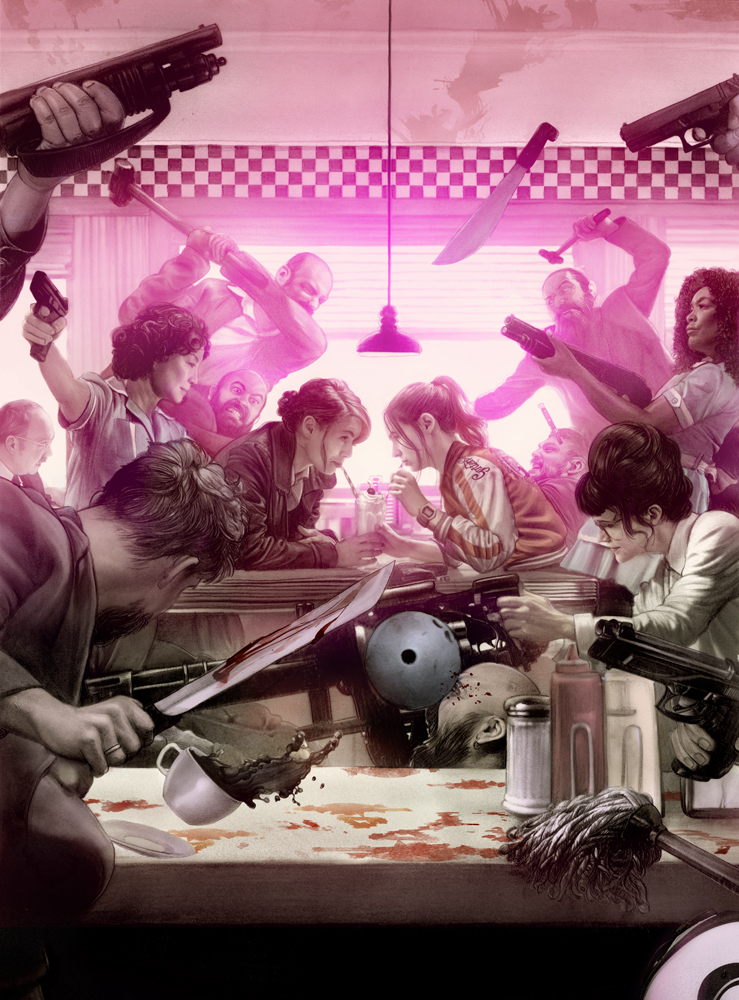
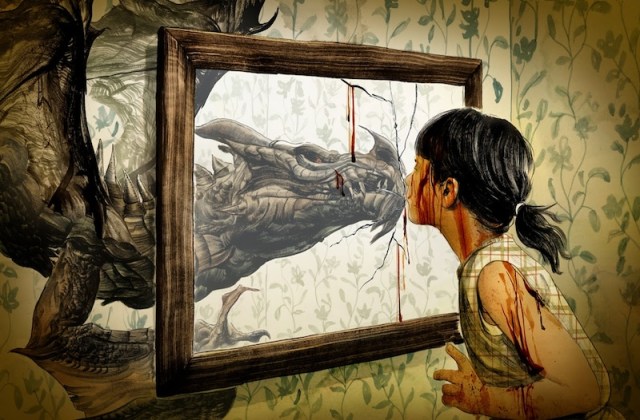

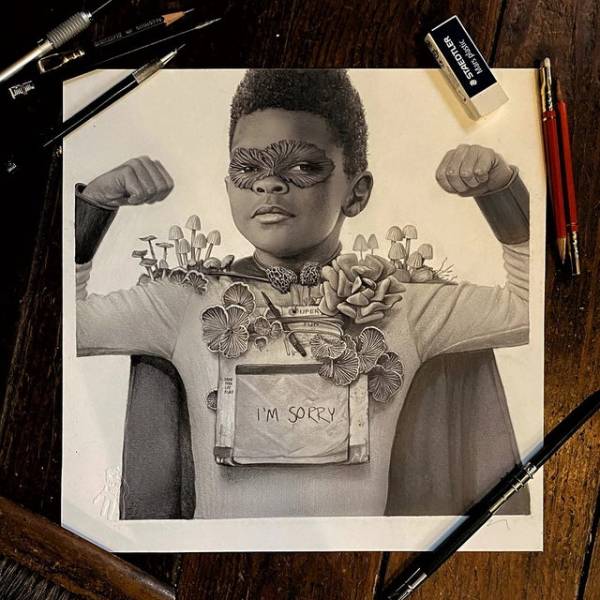
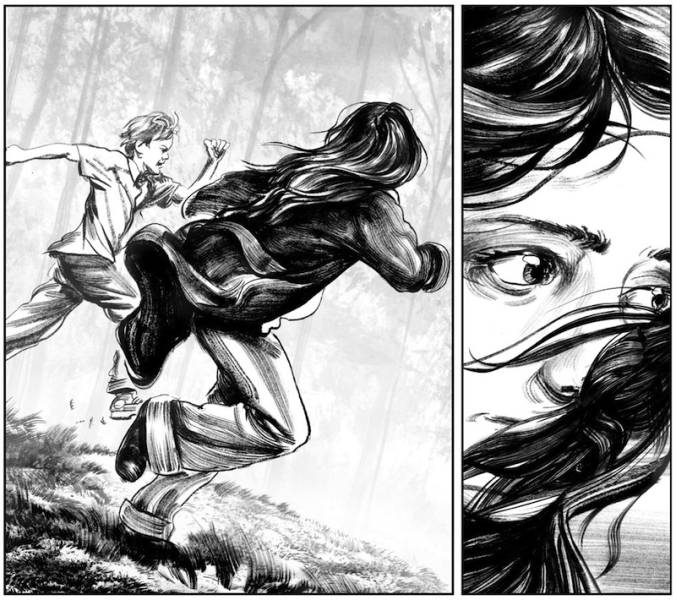
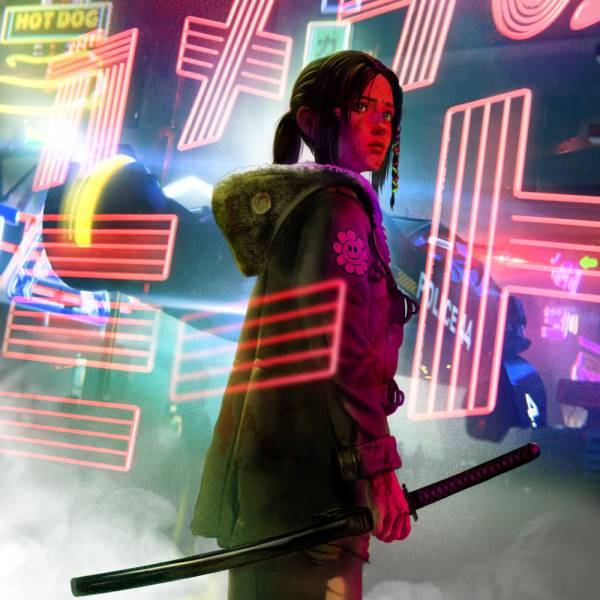
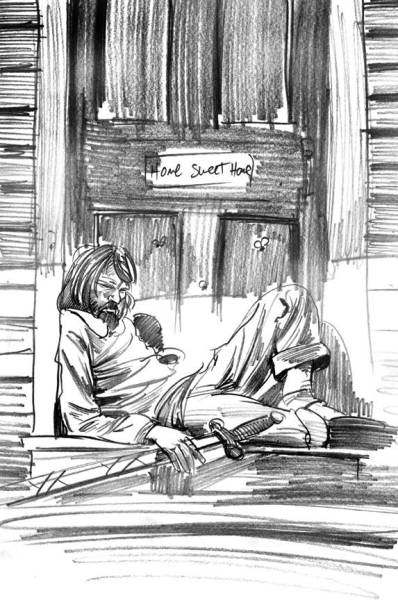


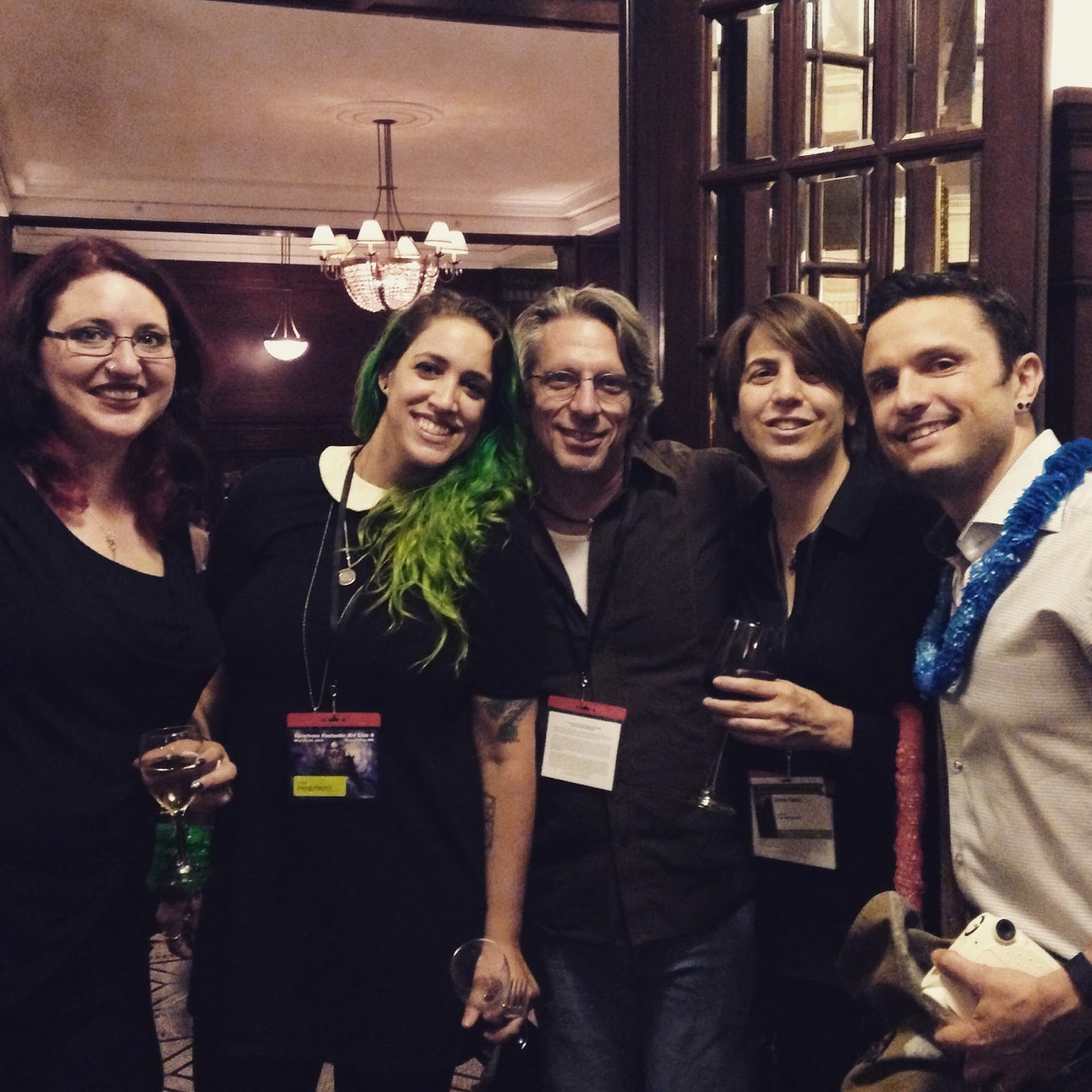


This is such a good article. I landed my first two ‘real’ freelance clients last year – one being a large, long-term job. The clients have been kind and the jobs have been going well overall, but there are so many micro frustrations I wasn’t prepared for in the client/illustrator relationship! Talking to friends and peers before responding to a client has been incredibly helpful – validating how I feel about each situation and getting another perspective or idea on how to handle it without letting emotions get the best of me. What I’ve also found really helpful is to, in each client job, pick a skill or area I’ve been wanting to work on (keeping in mind I need to have confidence I can pull it off – otherwise I’ll save it for personal experiments!) and incorporate that into the job. It’s helped me get through the frustrating business or client relationship part of things because I know at least I’m growing in the process!
It’s sort of the devil’s handshake we have with making the work: it matters to us on a personal level, so it follows we’d respond personally, or take personally, edits or comments or anything that celebrates or discourages… The trouble we can avoid is not giving ourselves time to cool before responding because regardless of how we feel about things, feelings have no real place when it comes to navigating the good and bad input from clients, or the audience.
My simple rule is : Kirk when you’re working, Spock when you’re communicating.
There is a lot of information out there about starting your career but little about what it takes to stay in the game – thanks for this.
You bet Kirby. It’s a long marathon wrapped in a triathalon, rolled in exhaustion and not for the faint of heart. But that’s true of all things valuable to us, and boy howdy at least with this, there’s art leftover.